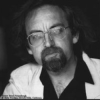Brian Ferneyhough

Brian Ferneyhough
Brian John Peter Ferneyhoughis an English composer, who has resided in California, United States since 1987. His work characterized by highly complex notation and the extensive use of irregular nested rhythmic tuplets, Ferneyhough is typically considered to be the central figure of the New Complexity movement. Ferneyhough taught composition at the Hochschule für Musik Freiburg and the University of California at San Diego, and currently, Stanford University, and is a regular lecturer in the summer courses at Darmstädter Ferienkurse...
NationalityBritish
ProfessionComposer
Date of Birth16 January 1943
Why, in such a case, should the performer essay any sort of considered approach at all?
With respect to the respective French and German traditions you are no doubt correct, although I am reluctant to see individual achievement reduced to archetypes.
Other composers have taken this particular technique much further than I in the meantime, with the result that the Law of Diminishing Returns has begun to apply.
I don't see 'lines of force' as being destructive, except to the extent that they are exclusively traceable through observance of the path of distorted material left in their wake.
I'm perplexed, though, by your application of the term 'negative' to my figural imagery.
The recent appearance of my Collected Writings has of course tended to mark a psychological milestone of sorts in my relation to things theoretical.
I am certainly not arguing for the de facto autonomy of the individual work, even though there is much to be said for making the attempt to see it in that light as one facet of the reception process.
My own position is, that it is largely up to the work itself to suggest the nature of these referential points without dimensions in and through the processes by which the distance between them is maintained.
The past nine years in San Diego have represented such a period of questioning.
Composers dialogue - and obsessively, bitterly argue - with other composers, often over the span of several centuries.
Certainly being in California has encouraged a sustained commitment to rethinking the nature, purposes, and relevance of the contemporary arts, specifically music, for a society which by and large seems to manage quite well without them.
I don't like listening to my music, not even new pieces. Generally, they sound pretty much like I expected them to sound, so it's what I wanted, and that's it.
I frequently compose out the entire metric structure of a piece in modified cyclic form, where each cyclic revolution undergoes some form of 'variation' much as if measure lengths were concrete musical 'material.'
There would seem to be a limit, even for an art preoccupied with boundaries and transgressions, beyond which a work reaches its breaking point and becomes an actual failure, a mere experimentation.